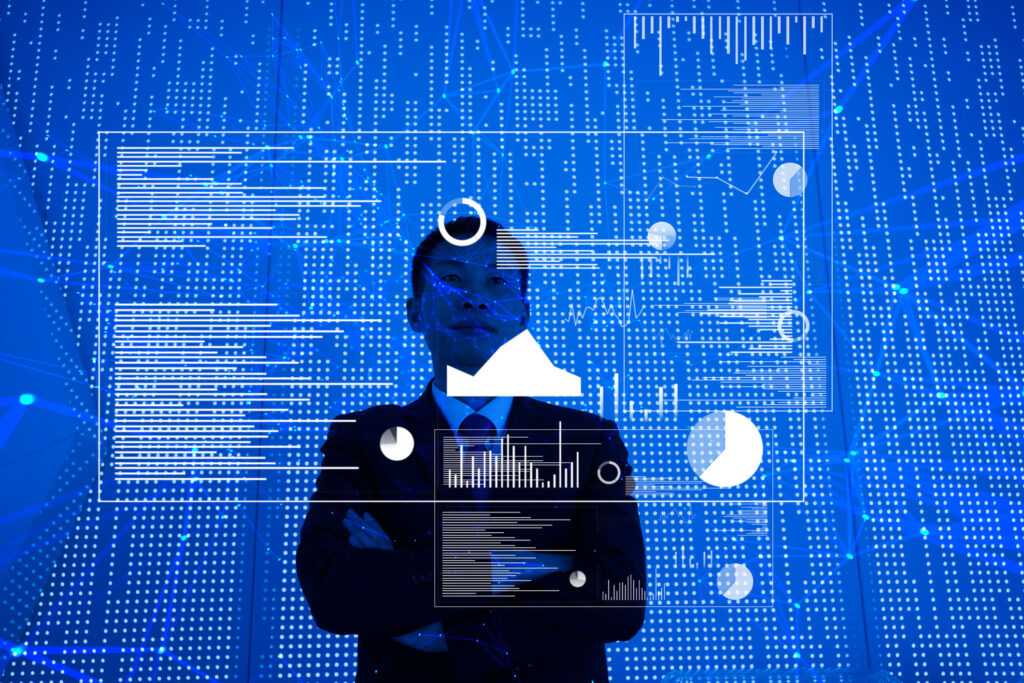Don’t panic, real-world business owners. not yet, at least. It will take several years before AI can match your hustle.
Long at the forefront of artificial intelligence (AI) advancements, Google’s DeepMind division made headlines in 2016 when one of its algorithms defeated a world champion in the strategic game Go, an accomplishment that was considered improbable at the time. Therefore, especially if you’re a startup entrepreneur, it’s worth listening to what one of DeepMind’s co-founders has to say about the direction AI is taking. AI may replace you in your profession.
Mustafa Suleyman, the CEO of Inflection AI, a small machine intelligence startup based in California and a co-founder of DeepMind, has hinted that this might actually come to pass in around five years. Suleyman stated that he believes AI technology will soon advance to the point where it can successfully develop a firm, project manage it, and sell items during this week’s World Economic Forum gathering in Davos. By 2030, this as-yet-imaginary AI entrepreneur will undoubtedly be able to accomplish so. Additionally, he is confident that these AI capabilities will be “widely available” at “very cheap” costs, possibly even as open-source systems, which would mean that some features of these incredibly intelligent AIs will be provided without charge.
Though it remains to be seen if an AI entrepreneur could truly outperform a human in the startup game, Suleyman’s assertion that an AI could fill the position is astounding. In addition, it is debatable and probably entangled in a maze of complex legal issues. The difficult question of whether AIs may patent or own intellectual property is one example. An AI is categorically ineligible to obtain a patent, according to a recent U.K. verdict.
Suleyman’s thoughts on AI entrepreneurs stemmed from an answer to a question concerning whether AIs can pass the renowned Turing test, highlighting just how speculative all of this is. If a true artificial general intelligence (AGI) can trick a human into believing that it is a human, then this is commonly regarded as the benchmark for artificial intelligence. Using a devious twist, Suleyman refuted the validity of the conventional Turing test. A more appropriate test, he contended, would be to assess if an AGI could carry out complex activities like taking on the role of an entrepreneur.
Suleyman’s ideas, no matter how theoretical, will undoubtedly frighten some in the venture capital industry as well as those who fear AI’s potential for destruction. What is the process for investing in a firm whose founder is just a stack of silicon chips? Even Suleyman expressed his belief that an enormous economic upheaval will result from this kind of invention.
The possibility of disruption is further supported by reports that, according to a poll conducted by the gaming Developers Conference, gaming firms are actually concerned about artificial intelligence (AI) replacing some of their jobs, especially those requiring a higher degree of creativity, like story, art, and quality assurance. Another example of the kind of upheaval AI can bring about is the recent wave of layoffs at Google. In a similar vein, according to PwC’s annual CEO survey, some executives believe that generative AI will result in a 5% global employment reduction this year. If in 2024 AI is expected to take over the PR department of a small business, for example, whose job will it be able to perform by 2030?
This week, Mark Zuckerberg, CEO of Meta, also spoke about intelligent AGIs. When discussing the future of AI with journalist Alex Heath at The Verge, he stated that Meta’s leadership has come to believe that “we need to build for general intelligence in order to build the products that we want to build.” In his speech, Zuckerberg also endorsed some of Suleyman’s ideas about the development of open-source AGI systems.
Of course, there is still room for discussion on this issue, and it can still be partially approached from a philosophical standpoint. Serial small business owners can likely unwind for the time being: Your jobs are not currently in danger from AIs. Most likely.
Suleyman even framed the concept in terms of the Turing test, a psychological/engineering conundrum. Of course, the idea that AGIs would soon be able to do business on their own is a complex one, with significant potential legal ramifications.
There is probably no legal framework in place for this to really occur, even if an AGI could conceptualize a business and possess the necessary abilities to project-manage it. Such a business would probably also require some human workers, or at the very least co-founders.













